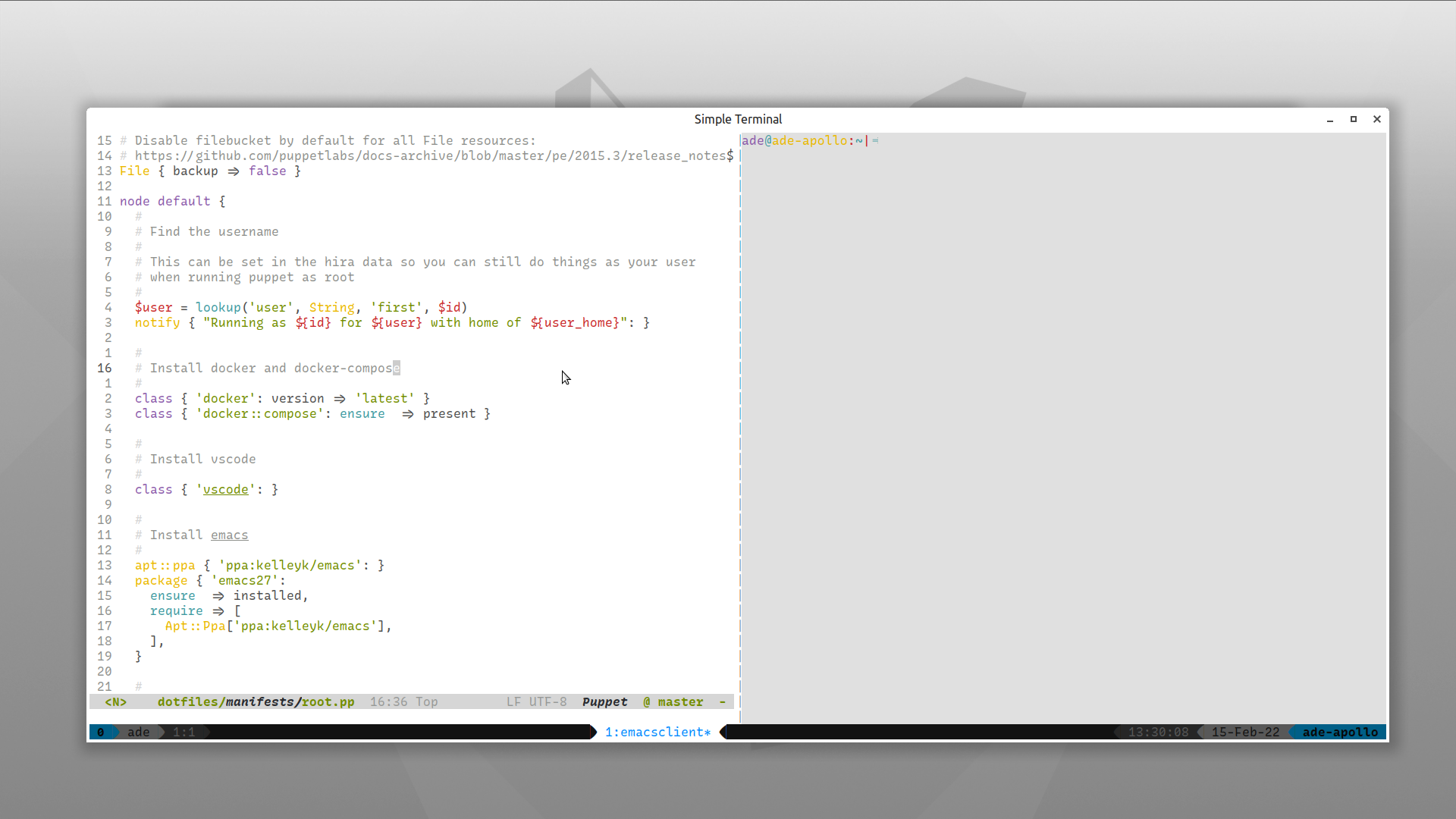When working on the start of a project its nice to know what you are changing. Or when you are working on a refactor having points to get back to is nice. When we are done we can go and clean up the history so it makes sense, for review, or just give our points more descriptive messages and you don't need to brake your flow when coding. |
||
|---|---|---|
| data | ||
| img | ||
| lib | ||
| manifests | ||
| modules | ||
| scripts | ||
| site-modules/core | ||
| .gitignore | ||
| .luacheckrc | ||
| .stylua.toml | ||
| bolt-project.yaml | ||
| bolt.yaml | ||
| hiera.yaml | ||
| Puppetfile | ||
| README.md | ||
Dotfiles EST 2015
Personal system configuration
This is my over complicated system configuation managed with Puppet, containing all the usual tools you would expect from a terminal development workflow.
Prerequisites
Before you consider using this configuration, it is recommended that you have your own repository and you just take what you need from this repository and adapt it to your needs. If you really want this configuration then it is recommended that you fork, review the code and remove anything you don't need.
To install the configuration Puppet Bolt and Git are required to on the system so you can run the install scripts.
Install
NOTE: Currently the only OS supported is Ubuntu MATE, up until 2020 Ubuntu Desktop was used at work so that should have good support but really any Debian system should be OK.
# Clone the repo
git clone https://gitlab.com/adeattwood/dotfiles.git ~/.dotfiles
# Apply the configuration
site-modules/core/files/bin/dotfiles apply
